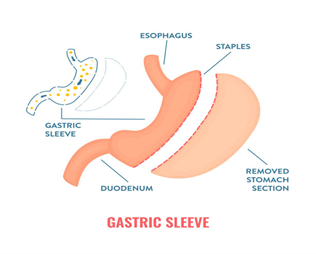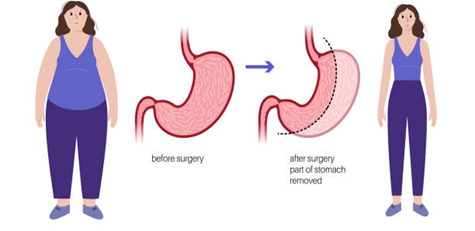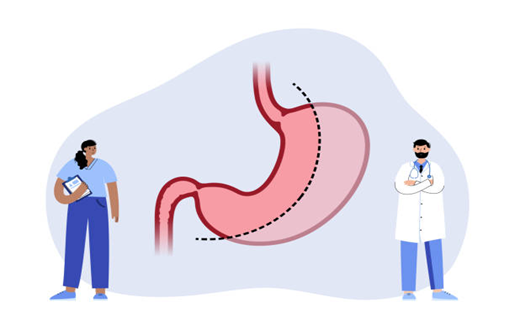Are you struggling with obesity, and traditional weight loss methods have failed to yield lasting results? You’re not alone. Countless men and women are battling not just their weight but also accompanying health issues such as diabetes, high blood pressure, and sleep apnea. Laparoscopic gastric sleeve surgery offers a transformative solution. This minimally invasive weight loss surgery helps reduce stomach size and limits food intake, supporting significant and sustained weight loss.
“For many patients, this procedure isn’t just about losing weight—it’s about reclaiming their lives and preventing future health complications,” says Dr. Harsh Sheth, an esteemed bariatric & GI laparoscopic surgeon in Mumbai. “When combined with long-term lifestyle changes, laparoscopic sleeve gastrectomy can be incredibly effective.”
With over a decade of expertise in advanced weight loss and gastrointestinal surgeries, Dr. Sheth specializes in minimally invasive procedures that prioritize patient safety, reduced recovery time, and effective outcomes. Known for his compassionate care and innovative approach, he is one of the most trusted names for laparoscopic sleeve gastrectomy in Mumbai.
What is Laparoscopic Gastric Sleeve Surgery and How is It Performed?

Laparoscopic gastric sleeve surgery, also known as laparoscopic sleeve gastrectomy, is a surgical procedure designed to help individuals lose significant weight by reducing the size of the stomach. Using minimally invasive techniques, the surgeon removes approximately 75-80% of the stomach, leaving behind a narrow tube or “sleeve.”
This surgery is performed with a laparoscope—a narrow, flexible tube equipped with a camera—placed through tiny cuts in the abdomen. The laparoscopic approach ensures reduced pain, quicker recovery, and minimal scarring compared to open surgery.
Dr. Harsh Sheth explains, “The stomach’s reduced size not only limits the quantity of food intake but also influences gut hormones that affect hunger, satiety, and blood sugar control, promoting sustained weight loss.”
What Are the Benefits of Choosing a Laparoscopic Approach for Sleeve Surgery?

Opting for a laparoscopic sleeve gastrectomy offers a multitude of advantages:
- Minimally Invasive Technique:
Tiny incisions lead to less post-operative discomfort and reduced risk of infection.
- Quick Recovery:
Patients can get back to normal life between 2 to 4 weeks.
- Lower Risk of Complications:
In comparison to open surgery, laparoscopic techniques decrease the risk of hernias and wound complications.
- Shorter Hospital Stay:
Average hospital stay is only 2-3 days after surgery.
- Maintained Digestive Function:
Because the intestines are not diverted, the natural digestive process is minimally disrupted.
- Hormonal Benefits:
Removal of fundus of stomach decreases ghrelin levels (the “hunger hormone”), assisting in suppressing hunger.
- Improved Co-Morbid Conditions:
Improved or total resolution in diabetes, high blood pressure, and sleep apnea.
What Lifestyle Changes Are Needed After Laparoscopic Gastric Sleeve Surgery?

Long-term success after sleeve gastrectomy depends greatly on lifestyle commitment:
- Dietary Changes:
Patients start with liquid diets, gradually reintroducing solid and soft foods. Portion and nutrient meals are now a necessity.
- Regular Physical Activity:
Incorporating daily physical activity is crucial. Walking, swimming, or strength training supports weight loss and overall health.
- Hydration:
Drinking at least 1.5–2 liters of water daily helps maintain metabolism and aids digestion.
- Supplements:
Owing to smaller stomach capacity, mineral and vitamin uptake can be impaired. A lifelong regimen of multivitamins, calcium, iron, and B12 is commonly prescribed.
- Behavioral Therapy:
Addressing emotional eating and establishing healthy coping mechanisms is key.
- Avoiding Trigger Foods:
Limit foods that are high in sugar, fat, and carbonated beverages to avoid distress and issues such as dumping syndrome.
“As I explain to my patients, the surgery itself is just a tool. Real change comes from persistent effort and lifestyle commitment,” says Dr. Sheth.
What Can I Expect During the Recovery Period After This Procedure?
The recovery process following a laparoscopic gastric sleeve surgery generally takes this path:
- Immediate Post-Op (First Week):
- 2–3 days hospital stay.
- Clear liquid diet and pain management.
- Walking is encouraged to reduce the risk of clots.
- Weeks 2–4:
- Transition to soft/pureed diet.
- Light activities resume.
- Close follow-up with your surgical team.
- Weeks 5–8:
- Gradual reintroduction of normal textured food.
- Energy levels improve.
- Patients start noticing significant weight loss.
- Beyond 2 Months:
- Solid foods are integrated completely.
- The majority of patients lose 50–60% of excess weight in 6 months.
- Emotional and psychological support becomes essential.
- Long-Term Monitoring:
- Regular check-ups with your bariatric team.
- Nutritional monitoring to prevent deficiencies.
- Ongoing weight and health monitoring.
Dr. Sheth stresses, “The formal recovery regimen not only guarantees healing but sets the stage for lifetime health benefits.”
Conclusion
Laparoscopic gastric sleeve surgery is not merely a weight reduction surgery—it’s a promise of a healthier lifestyle. With a skilled and compassionate professional like Dr. Harsh Sheth, patients not only get surgical finesse but also the following guidance to sustain their outcomes.
With a focus on patient safety, advanced technology, and holistic care, Dr. Sheth ensures each journey is tailored, empowering patients toward long-term well-being.
Remember, lasting change is possible—with the right support and dedication.
FAQ: Let’s Clear Up Some Common Concerns
1. Who is a candidate for this procedure?
2. Is the gastric sleeve procedure reversible?
3. How much weight can be lost after the surgery?
4. What are the benefits of doing the surgery laparoscopically?
5. How fast is the gastric sleeve recovery?
6. Is weight gain after surgery possible?
7. Is this procedure different from other bariatric operations?
Reference links:
https://my.clevelandclinic.org/health/treatments/22931-gastric-sleeve-surgery
Disclaimer: The information shared in this content is for educational purposes and not for promotional use.

